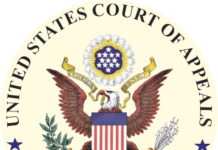Some chief judges across the state say they will not be able to clear a backlog of cases to comply with a speedy-trial deadline if the ongoing emergency disaster declaration is not extended.
Kansas Supreme Court Chief Justice Marla Luckert told leading legislators that she surveyed 31 judicial districts about their ability to ease a backlog of cases within the 150 days established by state law.
If the governor’s ongoing emergency disaster declaration is not extended, it would mean that cases now delayed because of the pandemic would need to go trial by March 14 or risk having hundreds of criminal cases dismissed.
Gov. Laura Kelly on Wednesday is expected to ask the State Finance Council to extend the emergency declaration to address the COVID-19 pandemic.
The emergency disaster declaration gives Luckert the latitude to suspend deadlines in the justice system, including the speedy trial requirements set out in state law.
If the chief justice doesn’t have the ability to adjust those requirements, prosecutors across the state will have to process a backlog of hundreds of cases knowing they will have to meet tight timelines or risk seeing those cases dismissed.
“Without question, the largest challenge currently facing Kansas courts is timely resolving criminal jury trials,” Luckert wrote.
“Bringing the large number of people required for a jury trial into our
courtrooms requires thoughtful and careful planning and scheduling,” she wrote.
Luckert told lawmakers in a six-page letter that the less populated judicial districts were more inclined to think they could plow through the backlog of cases, while the more populated districts didn’t believe they could.
For other counties, the ability to address pending jury trials is outside the court’s control, including virus case numbers, the capacity of prosecutors and public defenders to handle cases and juror response rates during the pandemic, Luckert said.
“Should the declaration of disaster emergency not be extended, it would be disastrous,” 18th District Chief Judge Jeff Goering in Sedgwick County told Luckert.
It was a similar view echoed by 3rd District Judge Richard Anderson in Shawnee County.
“There is absolutely no way this court will be able to manage the criminal jury trial
backlog within a 150-day time frame,” Anderson told Luckert.
Back in March when Luckert initially suspended speedy-trial deadlines, there were at least 1,777 criminal cases set for jury trial statewide.
While some cases have been settled, Luckert said, the bulk of them have been
or will need to be rescheduled while still more are being filed.
As of Oct. 1, chief judges statewide report that 505 criminal jury trials are scheduled to occur before the end of the calendar year.
On May 1, as state and local stay-at-home orders were lifted, the chief justice directed judicial districts to develop plans for resuming in-person court proceedings following public health guidelines for COVID-19.
At the end of May, the chief justice signed an order allowing courts to convene grand
juries and jury trials if necessary to preserve the constitutional right to a speedy trial so long as they met public health restrictions.
In August, Luckert signed an order requiring each judicial district to submit a plan for resuming jury trials to the Office of Judicial Administration.
Some judicial districts have approved plans for resuming jury trials, the chief justice wrote.
In others, jury trials have resumed with the volume expected to increase in the coming weeks.
Courts are increasing the number of prospective jurors being summoned to ensure an adequate juror pool should response rates suffer because of health concerns.
But in other areas, jury trials will not resume because the number of COVID-19 cases
exceeds gating criteria.
In Johnson County, for example, plans to resume jury trials in July have been pushed back repeatedly and are now set to start again Oct. 26.
“Without improvement in COVID case numbers, that date may move again,” she wrote.
Other jurisdictions in Sedgwick and Shawnee counties, have experienced outbreaks in jail that have restricted a detainee’s transport to a courthouse.
Luckert said steps have been taken to reduce the number of cases in waiting.
She said court officials conservatively estimate that there have been more than 110,000 virtual hearings held since March 18.
“Recognizing that no one should lose rights or be forced to appear in court if doing so puts that person’s or another’s health in jeopardy, we have asked the judges in
your communities to work hand-in-hand with local public health officials to tailor our court responses to your communities’ needs,” she wrote.
















